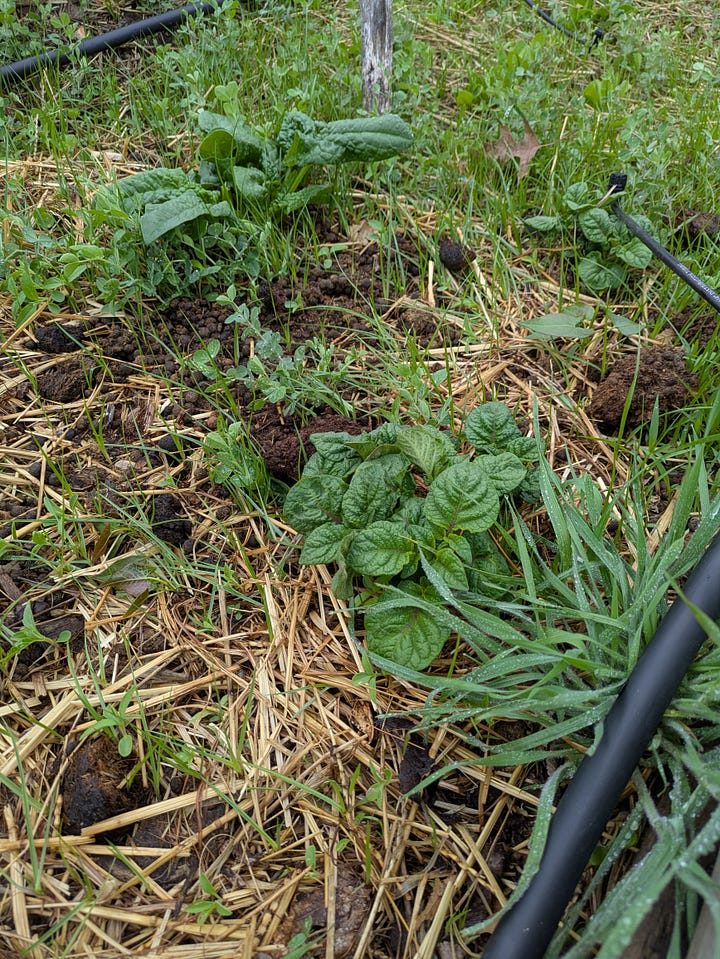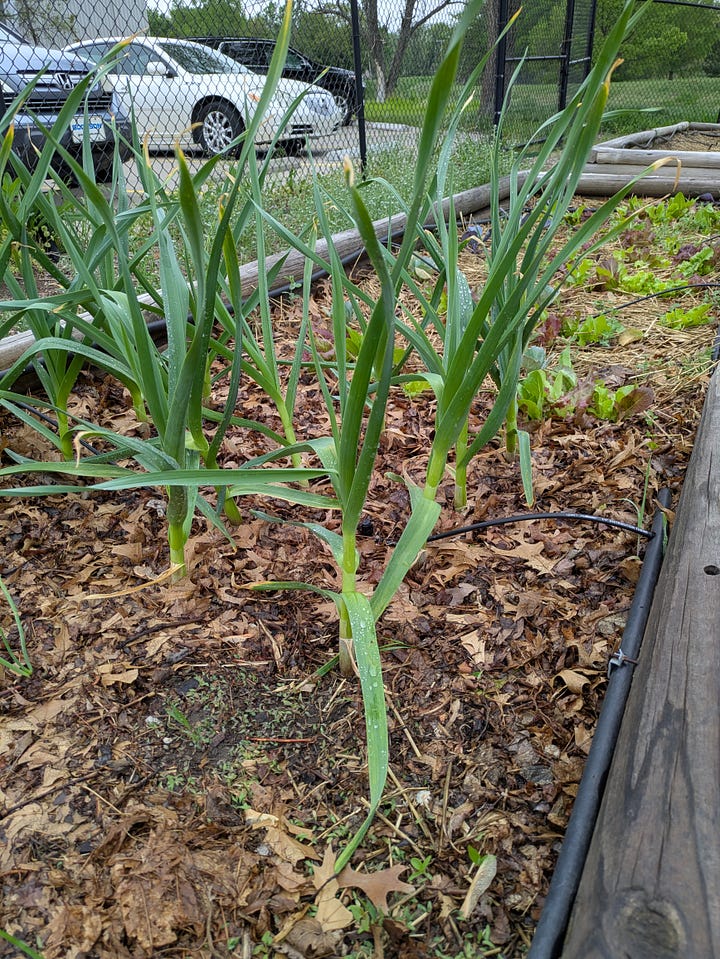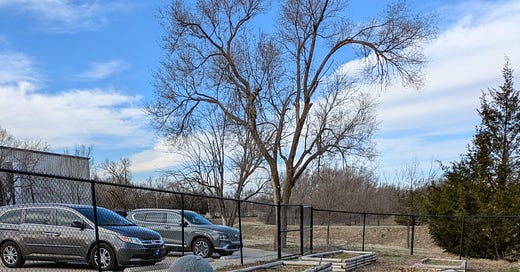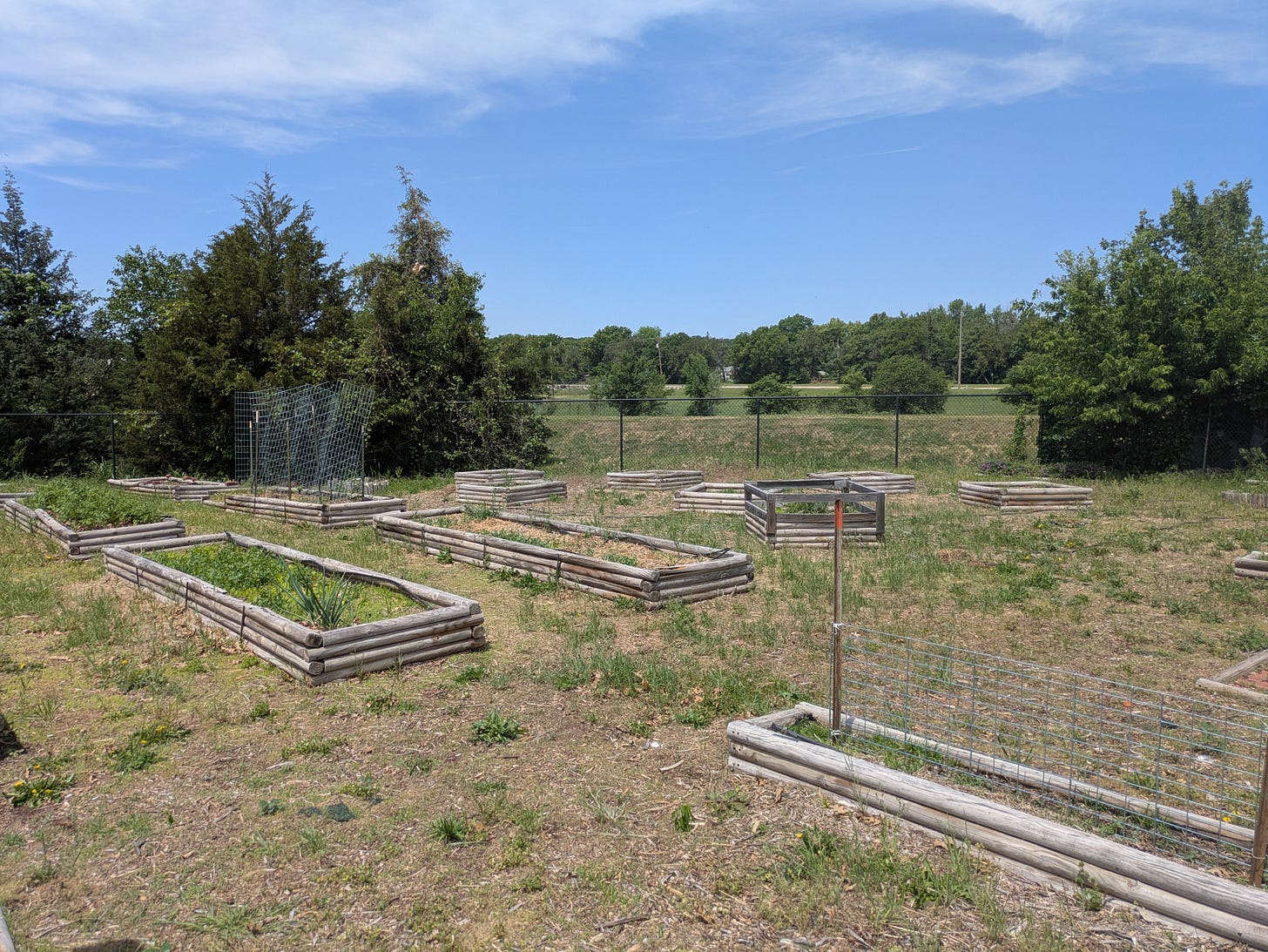To Dust You Shall Return
Part one from a series: "'Farming is an altar': prayer and worship in the work of farming, according to Catherine Doherty" in Radix, the newspaper of the Romero Catholic Worker in Wichita, Kansas
Editor’s Note: This article was originally published in Radix, the newspaper of Romero House Catholic Worker.
By Mattie Jenkins
Of those things in life that speak for themselves, I believe farming is one. No matter how distant any one of us may be from where our food is grown, we all know that its availability is thanks to the work of farmers.
Still, I think there is a spiritual value to farming that goes beyond material production; there is something deeply human and indeed, deeply Christian about what we call farming. Catherine Doherty points to this in her book, Apostolic Farming, and one feels while reading her book that farming surely must have a place among the more common acts of prayer and worship practiced by Christians.
So here we begin an argument for farming for the Christian (if any argument is needed), in two parts. Part one will serve as an introduction, outlining the importance of working the soil for the purpose of preserving our God-given identity as humans.
Part two—coming in June—will discuss farming as an intrinsically Christian endeavor. What I say here is the fruit of insights I have received from the land, from dear friends whose relationship to Creation models the argument I make, and from Doherty's book.
But what is meant by “farming”? Does it mean merely “growing food?” Even narrowing it down in that way is difficult in the context of today’s agriculture, for the food we encounter as a modern society is not grown whole.
We have come to understand food based on how it is processed, not how it is grown. But food has always come from the land, and it has long taken the cooperation of Man with Creation to work the land and receive its yield. Eating—arguably one of the most basic, essential of human activities—depends on forces outside of our control, relationships beyond our inner circle, realities which supermarkets and fast-food make it easy to forget.


In modern society, there is a rupture at the foundation of this gift we call food, a rupture in the relationship that we are meant to have with it and where it comes from. I assume that we all know this, or at least sense it somewhere within ourselves, and it is important to recognize this because if we have a disordered relationship with where our food comes from, then we have a disordered relationship with ourselves, since we come from the same place. From the dust, that is.
Thus, “farming” does mean growing food, but growing food that we have a relationship with and from soil that we have a relationship with. And so, for what follows, farming means the work of growing food in the context of a relationship: one of reciprocity and symbiosis, in which what is taken is received as a gift, and then given back in some way. The descriptor “apostolic” conveys the intention of our farming. The difference between apostolic farming and conventional farming is that apostolic farming submits itself–offers itself–to the Creator. Instead of merely being an occupation, apostolic farming is a way of life with a mission: living the gospel.
“[God] has placed our soil into this house of sod, and from the soil He will receive it back.” These are the words of a Russian peasant farmer, words that remained with Catherine Doherty long after she grew up and left Russia, words that inspired her and all the members of the Madonna House community, which she founded in Combermere, Canada, to realize a dream that God put in her heart to reintroduce farming to the world as an apostolic vocation.
The old Russian farmer continues, “‘Little lady, of course I know about the earth, and you will too. I came from her and I will return to her. Dust to dust! That’s the way God decreed we should come from Him into the world. That is how we shall go back to Him’”. This peasant farmer understands something about our humanity that modern society has forgotten (or neglected): the indispensable relationship between Man and Creation. The soil housed man’s primordial encounter with God, and it continues to be a place of encounter with the Creator and a sacred place of participation with Him in redemptive work. According to the biblical account of Creation, Adam emerges after God infuses His own breath into the dust of the Earth.
This intimate act reveals the Creator’s longing for unity in all of His Creation. With this as our origin story, I assume that the tension between dust and divinity must always be core to our understanding of ourselves as we wrestle alongside the Psalmist when he writes, “Who am I that You are mindful of me, the son of man that You care for me?” (Psalm 8).
The first command that Adam receives from God is the command to cultivate and care for the Earth, to “have dominion over it.” In this command, humans receive a great responsibility and a wondrous grace; the preservation and fruitfulness of our means of sustenance are placed in our hands. (Put this way, it begins to sound like the Annunciation, when the infinite God filled a finite womb, placing divinity in the constraints of mortality, redemption in the hands of the redeemed.)
We are simultaneously the pinnacle of God’s creation and formed from it, we are nothing apart from it. In working the soil, we encounter God in a way that reacquaints us with our human identity, reminding us paradoxically of our poverty and our glory.
Our origin story is not the only place that highlights this tension between dust and divinity; language also points to an indispensable connection between us and the Earth. Three words form a rich trifecta whose roots return to the proto-Indo-European word for “Earth”: human, humus, and humility. Is this shared history a coincidence? Humans are made in the image of God, souls and bodies entrusted with caring for the humus of the Earth, that humus on which we tread and from which springs the food that sustains our lives. With our feet on the ground, our hands dug into this rich soil–full of life and necessary for life–our souls soar up to God, the Creator of this intricately woven, exquisitely designed place that we call home. What response could there be other than humility? Dependent on the soil, we are not only reminded of our position before God, but also His dependence on us to participate, to cooperate with Him in His continually creative work. We came from the same dust that produces our food, from the food that sustains our life.
And what else comes from this dust, this soil? The bread and wine that become Our Lord in the Mass. Given to us by the Earth, through the work of our hands, we offer it back to Him and He transforms it into Himself, just as we one day will be transformed correspondingly to His glorious image. Dust to dust, indeed!
Farming humbles us and brings us back to our roots, it reawakens us to the creative spirit deadened by the rapacious desires of sin. Working the soil and growing food was our first given means of participating in our own redemption and the redemption of the world. It is as natural to the human experience as breathing.
“[God] has placed our soil into this house of sod, and from the soil He will receive it back.” When the Russian farmer of Doherty’s youth left these words to her, he captured more than the practical value of growing food lovingly and thoughtfully. He captured something profound about our human identity and our relationship to the dust.
In the season of Lent, as we reflect on the words of Scripture, “from dust you came and to dust you shall return,” may it be a reminder of our life as much as it is of our death.
Mattie Jenkins is the co-founder of Romero House Catholic Worker in Wichita, Kansas. Subscribe to Radix here. And learn more about the Romero House Community Garden here.







This is why I feel that the Rogation days and Ember days should be reinstated, not that they’ve been completely gotten rid of. So often we just eat without actually thanking God, or eachother, for food.